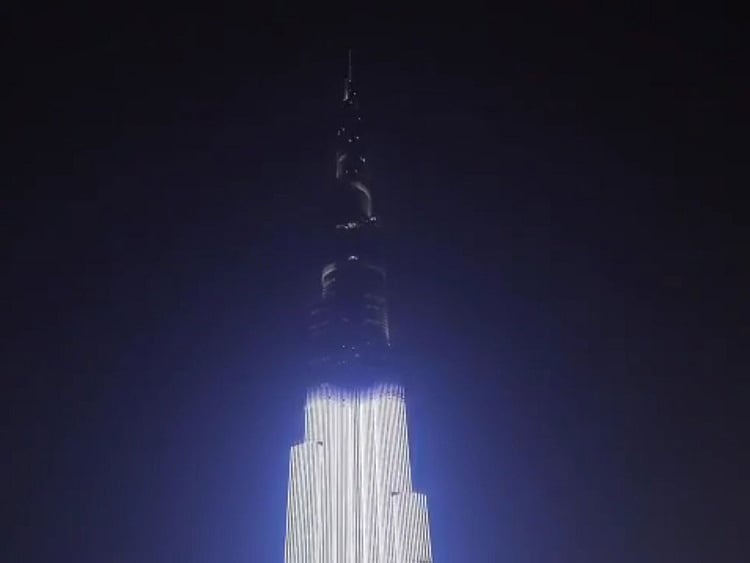Dubai: Visitors and residents in Downtown Dubai were surprised to see the top half of the world’s tallest tower plunged in darkness recently.
The UAE’s Burj Khalifa tower switched off half of its lights on Tuesday night as a show of support for a global movement initiated by the United Nations (UN).
The top portion of the building went dark, while the bottom was lit up in bright white. The symbolic move is in solidarity with the campaign dubbed "HeForShe," which seeks to encourage men to support calls for gender equality.
The stark contrast displayed on the UAE landmark provides a visual metaphor of what will happen to the world if women are excluded from the society.
“We are delighted that the UAE is participating in this global campaign to inspire action on gender equality,” said Dr. Mouza Al Shehhi, director of UN Women UAE liaison office for the GCC.
The UAE has recently celebrated Emirati Women’s Day, to pay tribute to the achievements and contributions made by the nation’s women.
A number of female expatriates in the UAE have also been recognised by international magazine Forbes for being successful in their career. They're among the 100 most influential women in the Middle East, who landed in leadership roles like CEOs and presidents that are mostly dominated by men.
“The UAE is pioneer in championing women’s rights and has taken great strides towards gender equality… This campaign is part of our ongoing efforts, to ensure that the entire public and especially men, not only celebrate the achievements, but also appreciate the struggles, which still face women today,” added Al Shehhi.
In major organisations worldwide, women are also increasingly being recognized. In Accor Hotels, where about half of the 240,000 workers are women, the percentage of women who have been appointed as a general manager - a position also mostly held by men - has grown from 27 per cent to 29 per cent since 2015.
In July 2015, Schneider Electric started making efforts to ensure women get equal pay as well. “The company is now implementing actions for addressing pay equity gaps,” according to HeforShe in a report.
While a number of women have made great strides in the society and now enjoy equal rights with men, many others continue to suffer discrimination and violence.
In the area of violence, among the latest cases to surface is that of a Filipina expatriate working as a helper who was found dead in Kuwait early this year. Her body was stuffed in a freezer in an abandoned home.
About one in five women and girls between the ages of 15 and 49 have also reported experiencing physical or sexual violence by an intimate partner within a 12-month period, according to recent report by the Sustainable Development Agenda.
There are also at least 49 countries that have no laws in place to protect women against physical abuse that happens inside their very own homes.
“Progress is occurring regarding harmful practices such as child marriage and female genital mutilation, which has declined by 30 per cent in the past decade, but there is still much work to be done to completely eliminate such practices.”
Sign up for the Daily Briefing
Get the latest news and updates straight to your inbox
Network Links
GN StoreDownload our app
© Al Nisr Publishing LLC 2026. All rights reserved.
